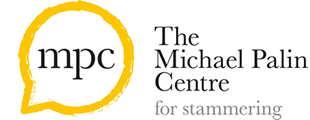It takes about 2 hours to complete a case history with parents and the same amount of time for the child or young person to complete their assessment. There is a break in the middle which lasts for about 20 minutes so that the two MPC therapists and your local therapist can confer. Then there is a final conversation for parents with their therapist to talk about stammering in general and answer any questions, go through the assessment results, and to discuss the main things which seem to contribute to the child or young person's vulnerability to stammering. Older children and young people also have time to talk about these issues with their therapist. There is also time to discuss recommendations and agree a plan that everyone is happy with. This section takes about an hour.
Children's Assessments

FAQs about the assessment
What happens in my son or daughter's session?
- assess their fluency by recording a speech sample and analysing this
- go through a structured conversation with your son or daughter about their speech, in order to gain a sense of the degree to which stammering impacts on their everyday confidence in communicating and on their life in general
- look at questionnaires that have been completed
- complete a screening assessment for language skills if this has not been done beforehand
The therapist will also be gauging your son or daughter's interest in therapy, talking about stammering at a level that is appropriate to their age and awareness of stammering and, sometimes, trying out some basic therapy techniques.
What happens in the parent session?
How are decisions made?
Our staff will work with you, your son or daughter, and your local therapist to help you decide what you would like to do next. We offer suggestions and recommendations based on our time with you and our expertise in stammering and we then invite you to consider what you would like to do. With our teenage clients we encourage them to be active in this decision making process and we explain this at the beginning of the session. Sometimes people make decisions while they are here, while sometimes people take more time to think things over.
What if my son or daughter does not stammer much on the day?
That doesn't matter. We know that stammering varies and that we may or may not see the stammer the way you do elsewhere or at other times. However, you will be able to tell us about how it can be at other times.
What if one of us (parents) cannot attend on the day?
Please do call us to talk about this as soon as you know there is a problem. We place great emphasis on meeting with both parents where this is the structure of the family and will want to arrange an alternative appointment time where you will both be able to attend. If there is a last minute problem we will be able to assess your son or daughter but not complete the consultation fully until you have both attended your parent session.
We (parents) have separated - is it still important that we both attend?
Where both parents continue to be actively involved then it is ideal that both are involved in the MPC assessment process, however we are happy to offer each parent their own session. Occasionally, separated or divorced parents decide to attend together but many prefer to have separate sessions and it is a good idea to talk to one of the MPC therapists about this before making plans.
What about therapy - where will that happen?
This varies. Sometimes our role is to make recommendations which are carried out by a local therapist. Sometimes families come to us for therapy. This decision is made collaboratively between MPC staff and the local therapy service, taking into account the child, young personís and the parentsí preference. For this to happen funding agreements between the Michael Palin Centre and the family's local NHS commissioners need to be agreed, or therapy can be funded privately.

